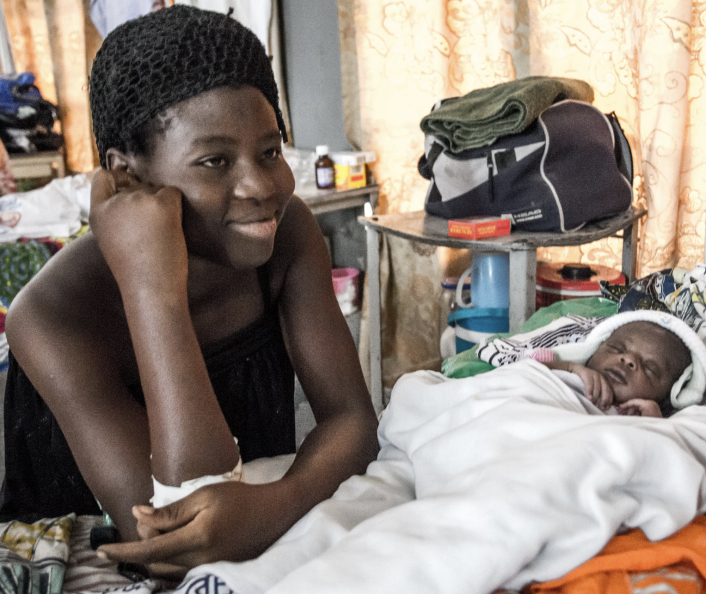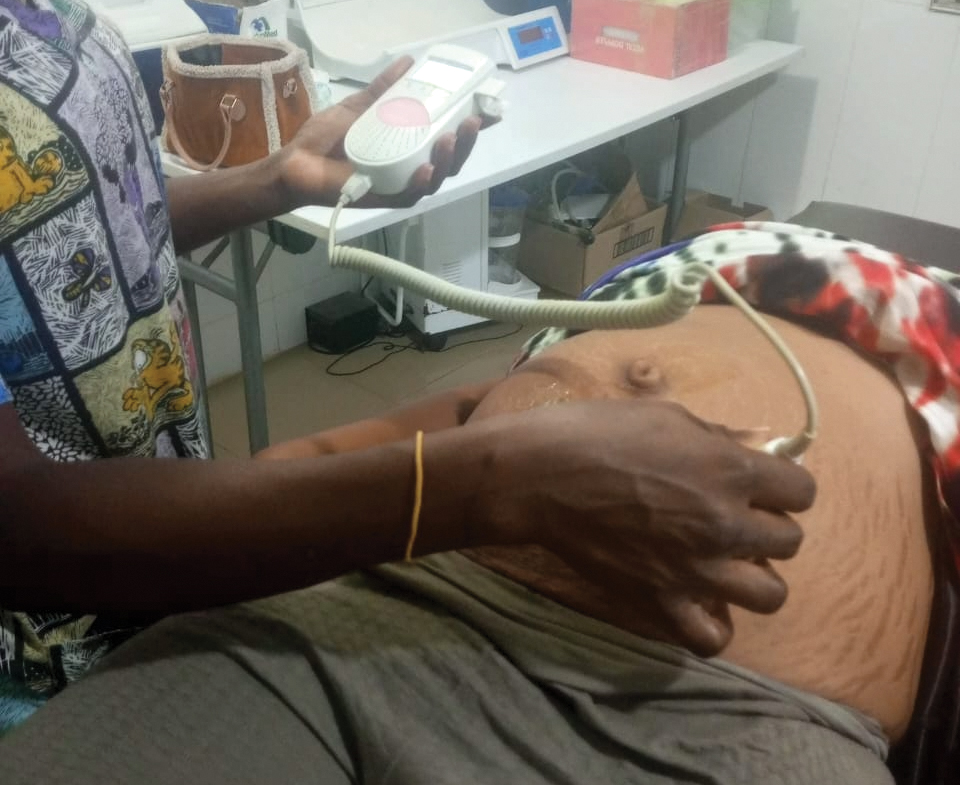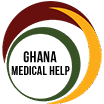Maternity Service Agenda (MSA)
In 2025, the MSA project has improved perinatal care for nearly 70,000 pregnant women and their newborns in Ghana.
The Upper Regions of Ghana have witnessed an alarming increase in maternal and infant morbidity and mortality. In fact, a mom in northern Ghana is 8x less likely to survive childbirth than a mom in North America, and her baby is 5x more likely to die. This rise in poor outcomes stems from the fact that healthcare workers who face maternal and neonatal emergencies are limited by inadequate knowledge, skills, and competencies in Emergency Obstetric and Neonatal Care (EmONC).
In response to this issue, GMH’s newest ground-breaking initiative, the Maternity Service Agenda (MSA), is designed to strengthen maternal and newborn care in northern Ghana, ushering in a new era where every mother and child has access to the quality healthcare they deserve.

In 26 hospitals, we are seeing less unnecessary cesarian sections, lower maternal morbidity and mortality rates, and improved newborn health outcomes. By establishing each hospital as a self-reliant training hub for its local physicians and midwives, we can ensure these changes last long into the future.
Following the initial EmONC Training-of-Trainers in May 2024, GMH conducted 3-day refresher workshops in the Upper East Region (March 2025) and the Upper West Region (November 2024 and May 2025). These hands-on workshops expanded the clinical skills of 81 healthcare workers (22 physicians, 59 midwives) who now serve as EmONC trainers in their local hospitals to improve antenatal care and newborn health outcomes in 26 districts. These hospitals support a population of over 2 million people. This project will grow to include 36 district health facilities in January 2026 with the expansion to the North East Region.
A key improvement in 2025 training workshops was the increased emphasis on practical learning, made possible by delivering the foundational knowledge in advance through weekly obstetric webinars. Attendance of these interactive webinars ranges from 100 to 300 midwives and physicians. This allowed health workers to spend more time practicing and gaining confidence in hands-on EmONC skills, such as vacuum-assisted delivery and neonatal resuscitation, and improve their readiness to train colleagues.
Essential medical equipment was donated to the perinatal units in these 26 district hospitals in May 2025. This includes the donation of 360 Kiwi vacuum delivery systems by Laborie, which are reducing poor outcomes for laboring women and their newborns while also reducing unnecessary cesarean sections. The MSA project also organized the donation of 2-3 fetal dopplers, 2 neonate training mannequins, and 1 obstetric training mannequin for each health facility. The above donations will further be distributed to 10 hospitals in the North East Region after the completion of EmONC training.
After completing the refresher training, GMH supervised the 81 new local trainers as they conducted scaled-down EmONC workshops at their respective hospitals in the Upper East and Upper West Regions. These trainers, called MSA Ambassadors, organize and lead a monthly EmONC workshop for local midwives. This strengthens healthcare workforce capacity, enhances perinatal care equally across rural and remote hospitals, and lowers maternal and newborn morbidity and mortality.
By connecting and establishing relationships between regional obstetricians, hospital physicians and community midwives, the MSA project has created new urgent maternity patient referral pathways. This enables rural midwives to quickly call for help and expedite patient transfers to the nearest hospital for pregnant women in need.

GMH is fundraising for electronic fetal dopplers.
By providing these essential devices to Ghanaian maternity providers in rural areas, we aim to further reduce preventable complications and deaths during pregnancy and childbirth. These devices cost less than $100 and save lives.
We are calling for the donation of fetal dopplers to help provide the gift of neonatal care where it’s so critically needed. We invite you to be a part of this transformative journey by donating your own fetal doppler or contributing a monetary donation towards one.
Email us at msa@ghanamedicalhelp.com to learn more.

The Fetal Doppler Drive aims to equip Ghanaian maternity service providers with Fetal Dopplers, essential devices in the prevention of complications and death during pregnancy.
Subscribe to our mailing list to receive updates on GMH events and activities.
Phone: +1 (249) 359-6788
Email: info@ghanamedicalhelp.com
Mailing Addess: 173 Fern Rd West, Qualicum Beach BC, V9K 1S4 Canada
